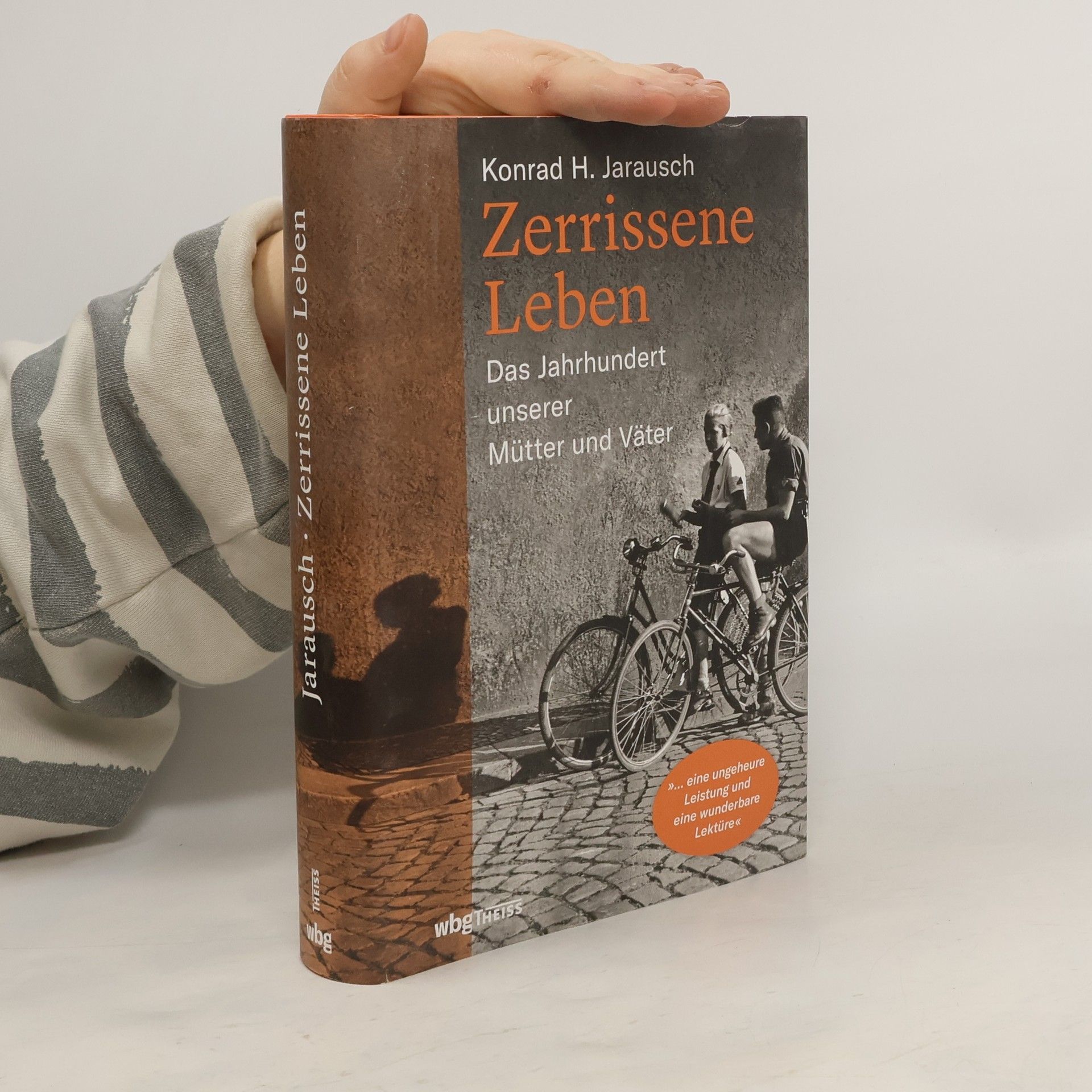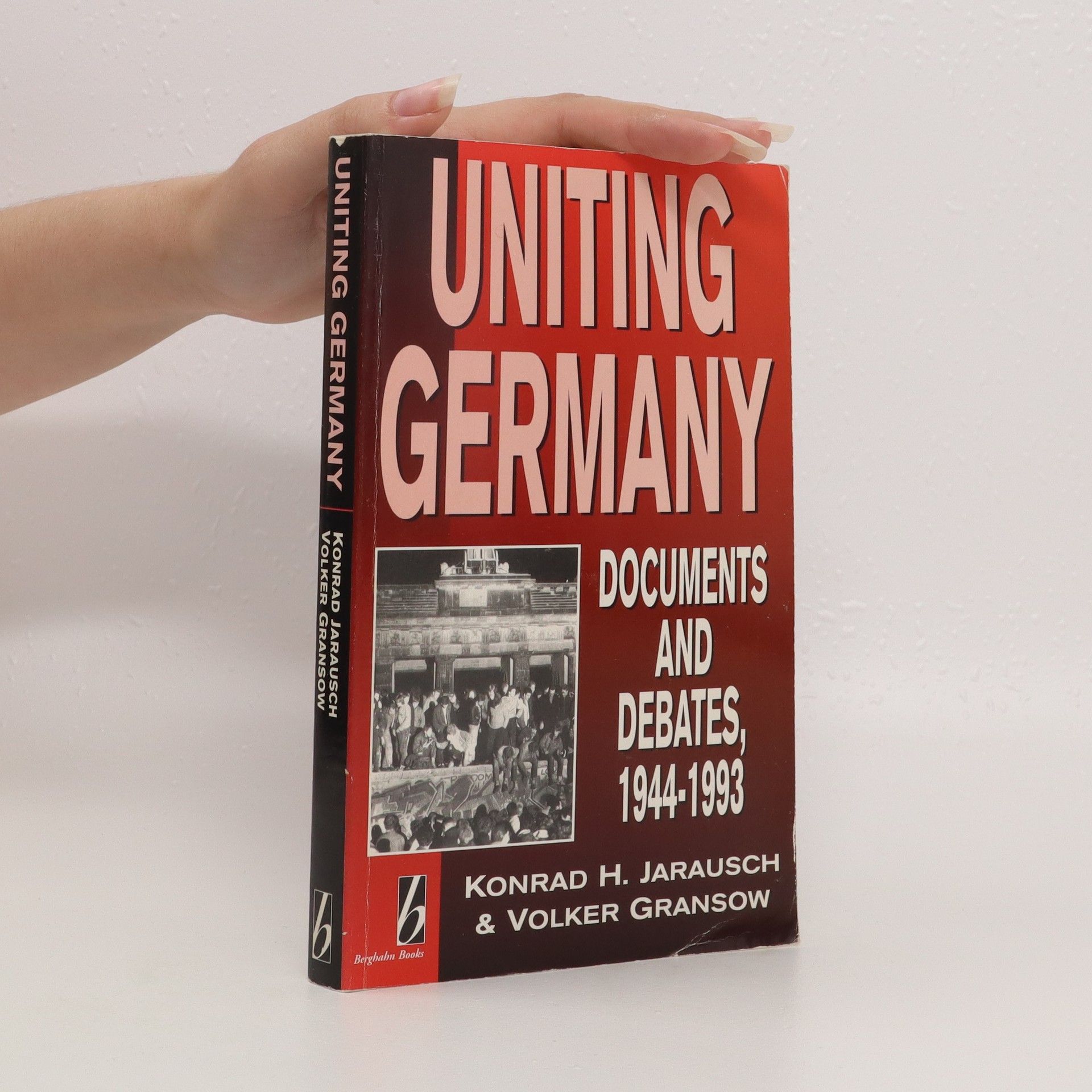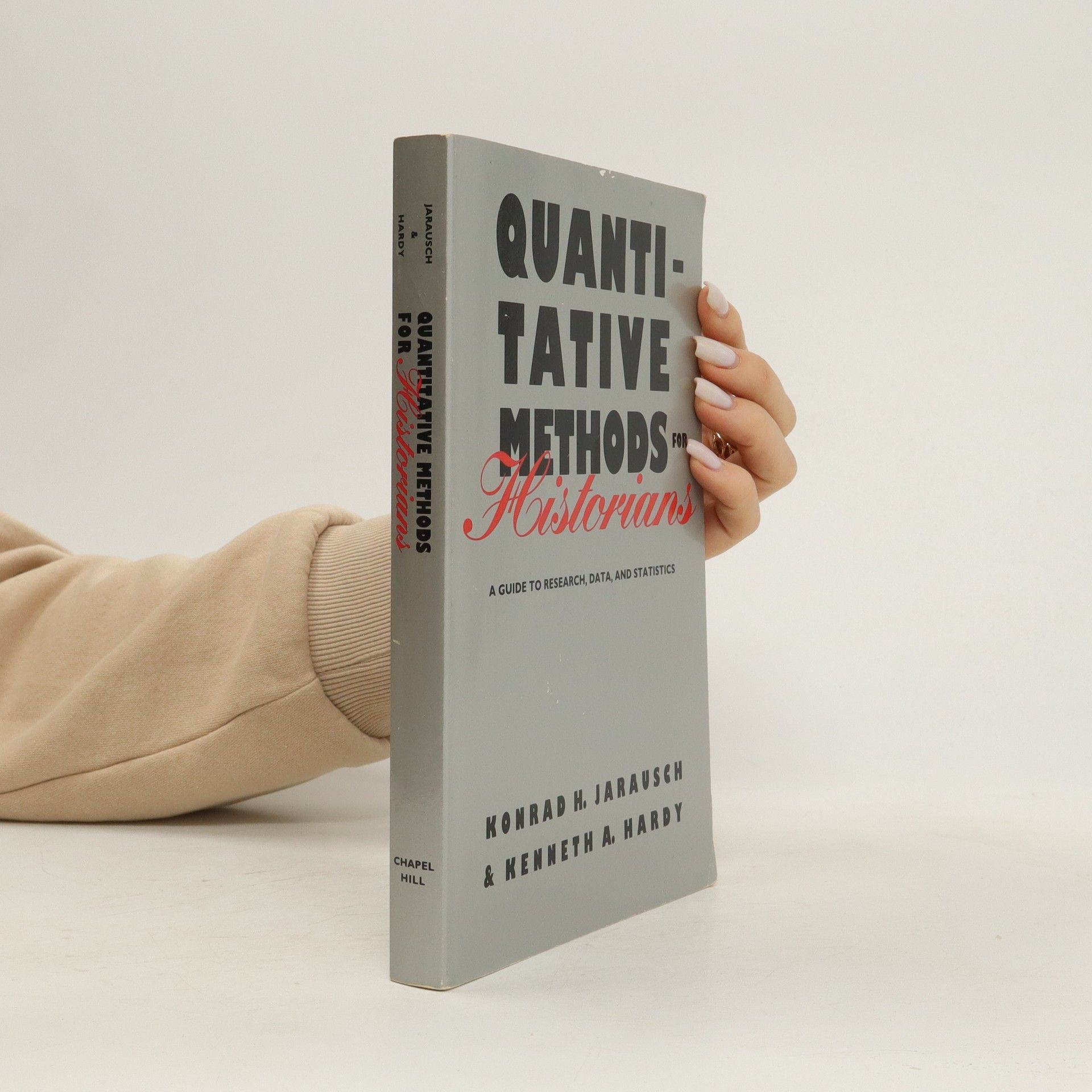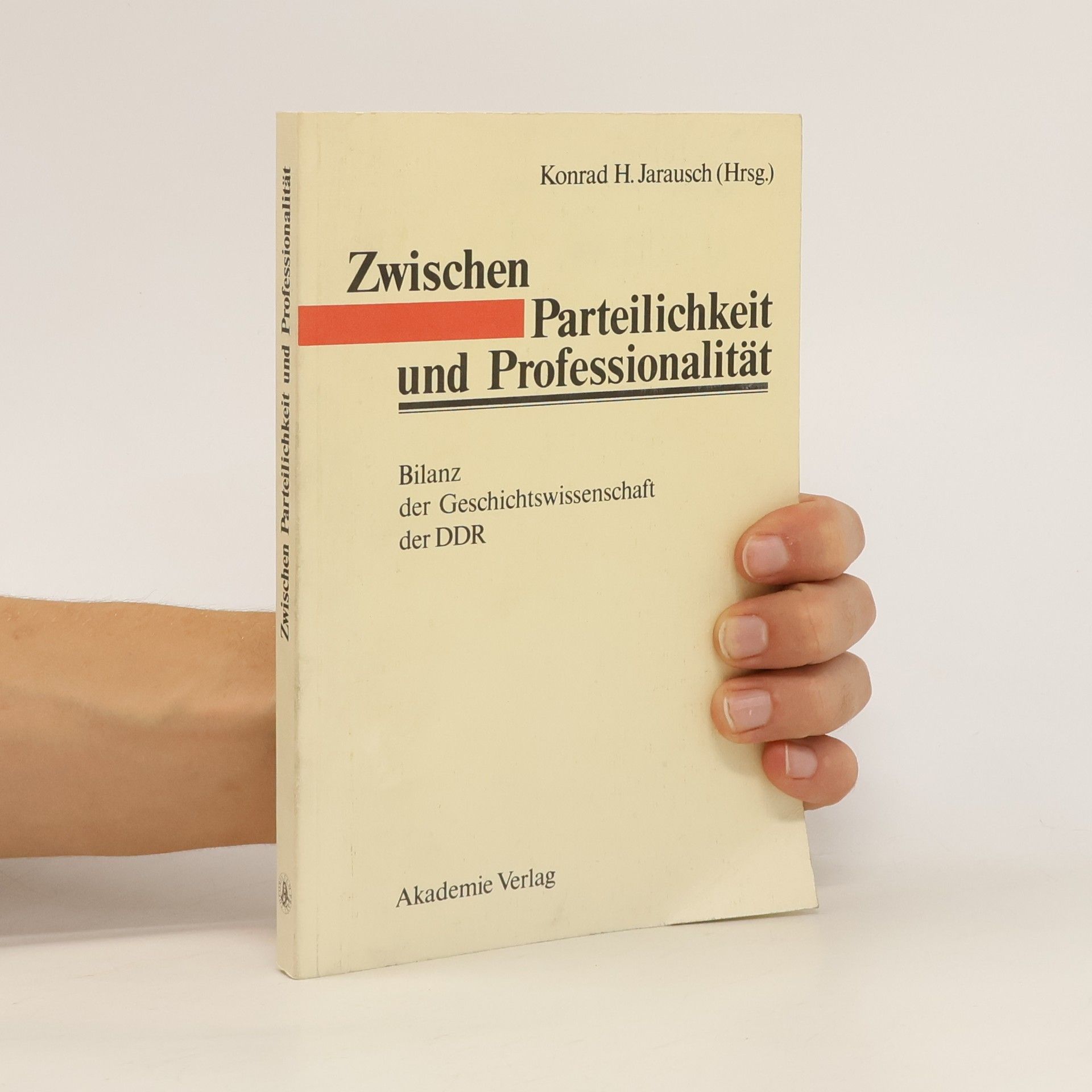The pioneering texts in quantitative history were written over two decades ago, but as a command of methodological context, computer experience, and statistical literacy have become increasingly important to the study of history, the need for an introduct
Konrad Hugo Jarausch Libri
Konrad H. Jarausch è il Lurcy Professor di Civiltà Europea presso l'Università della Carolina del Nord a Chapel Hill. Il suo lavoro accademico approfondisce lo studio intricato della storia e della civiltà europea. I contributi di Jarausch mirano a promuovere una comprensione più profonda dell'evoluzione delle società europee e dei loro quadri culturali. Le sue intuizioni accademiche arricchiscono il nostro apprezzamento del variegato patrimonio europeo.






Uniting Germany : documents and debates, 1944-1993
- 282pagine
- 10 ore di lettura
The unification of Germany is the most important change in Central Europe in the last four decades. Understanding this rapid and unforeseen development has raised old fears as well as inspired new hopes. In order to make sense out of the bewildering process and to help both expert and lay readers understand the changes and consequences, an American historian and a German social scientist put together this collection of central texts on German unification, the first of its kind. An invaluable reference tool.
Embattled Europe
- 344pagine
- 13 ore di lettura
Peaceful Revolution -- Post-Communist Transformation -- European Integration -- Sovereign Debt Debacle -- Migration Wave -- Brexit Self-Destruction -- Economic Competitiveness -- Restructured Welfare State -- Protected Environment -- Defense Disagreements -- Populist Backlash -- Global Role.
Out of ashes : a new history of Europe in the twentieth century
- 880pagine
- 31 ore di lettura
"A sweeping history of twentieth-century Europe, Out of Ashes tells the story of an era of unparalleled violence and barbarity yet also of humanity, prosperity, and promise. Konrad Jarausch describes how the European nations emerged from the nineteenth century with high hopes for continued material progress and proud of their imperial command over the globe, only to become embroiled in the bloodshed of World War I, which brought an end to their optimism and gave rise to competing democratic, communist, and fascist ideologies. He shows how the 1920s witnessed renewed hope and a flourishing of modernist art and literature, but how the decade ended in economic collapse and gave rise to a second, more devastating world war and genocide on an unprecedented scale. Jarausch further explores how Western Europe surprisingly recovered due to American help and political integration. Finally, he examines how the Cold War pushed the divided continent to the brink of nuclear annihilation, and how the unforeseen triumph of liberal capitalism came to be threatened by Islamic fundamentalism, global economic crisis, and an uncertain future. A stunning achievement, Out of Ashes explores the paradox of the European encounter with modernity in the twentieth century, shedding new light on why it led to cataclysm, inhumanity, and self-destruction, but also social justice, democracy, and peace"-- Provided by publisher
Zerrissene Leben
Das Jahrhundert unserer Mütter und Väter
Konrad Jarausch schreibt eine neue deutsche Geschichte des 20. Jahrhunderts: im Spiegel der Lebensgeschichten von über 80 Zeitzeugen. Geboren während der Weimarer Republik, hat diese Generation den Nationalsozialismus und den Zweiten Weltkrieg erlebt, aber auch die Nachkriegszeit – in BRD oder DDR – und die Wiedervereinigung. Es sind sehr verschiedene Lebensläufe, gebrochene Biografien: von glühenden Nazis bis zu jüdischen Holocaust-Opfern, von politischen Wendehälsen bis zu unpolitischen Zeitgenossen. Darunter sind bekannte Namen wie Joachim Fest, Fritz Stern, Dorothee Sölle oder Ruth Klüger ebenso wie gänzlich unbekannte. Wie haben diese \"ganz normalen Deutschen\" das 20. Jahrhundert erlebt, erlitten und verarbeitet? Jarausch erzählt die Geschichte einer Generation. Und er tut dies auf eine besondere Art und Weise, indem er aus ihren Geschichten in vielen Mosaiksteinchen eine kollektive Biografie des 20. Jahrhunderts entstehen lässt. Wie oft kann man neu anfangen? Konrad Jarausch schreibt eine neue deutsche Geschichte des 20. Jahrhunderts: im Spiegel der Lebensgeschichten von über 80 Zeitzeugen. Geboren während der Weimarer Republik, hat diese Generation den Nationalsozialismus und den Zweiten Weltkrieg erlebt, aber auch die Nachkriegszeit - in BRD oder DDR
Die Umkehr
- 500pagine
- 18 ore di lettura
